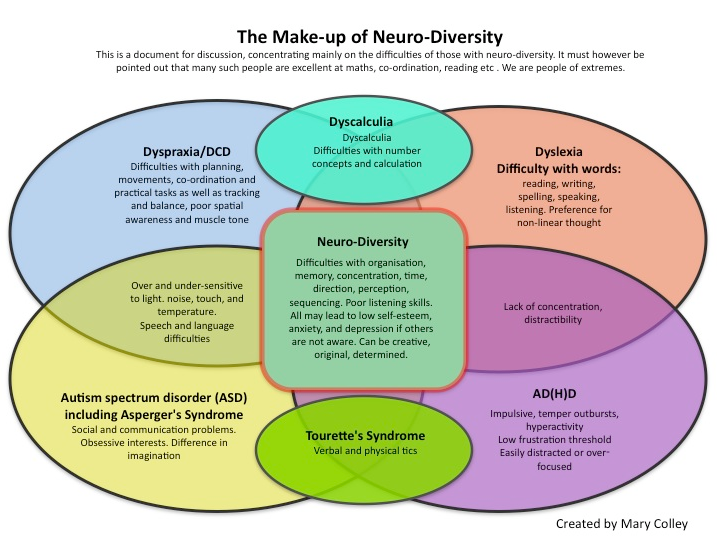In the UK it's estimated that 15 - 20% of the population is neurodiverse. That includes people with autism, ADHD, dyslexia, and dyspraxia. Around 6.3 million people in the UK, or about 10% of the population, have dyslexia. This means roughly 1 in 10 individuals experience difficulties with reading, writing, and spelling. It may well be more. That makes it normal in my view. Yet the majority of us don't really understand how dyslexia affects individuals.

There are 4 types of dyslexia include phonological (auditory) dyslexia, surface (visual) dyslexia, rapid naming deficit (difficulty naming a letter, number, color, or object quickly and automatically), and double deficit dyslexia (deficits in both the phonological process and naming speed).
Dyslexics do not just have problems with reading & writing. They may struggle with navigation & map reading, they may be disorganised & forget instructions, they may suffer from anxiety, they may suffer from lack of confidence & self esteem.
Dyslexia does not impact intelligence. Dyslexics may have a different cognitive profile, with strengths in areas like problem-solving, creativity, and communication. Famous individuals like Albert Einstein, Stephen Hawking, Alan Turing and Leonardo da Vinci were dyslexic and demonstrated high intelligence and exceptional talent in their respective fields. UK intelligence agency, GCHQ, has valued Dyslexic Thinking for over 100 years. It recruits 4x as many dyslexics to its apprentice scheme than anyone else.
We all need to understand far more about neurodiversity & value difference. It seems that humans are fixated on being like everyone else. Being in a team, a clan, a group. That can lead to at best teasing & at worst bullying. We can see it everywhere, in all societies.
Fortunately there is now more focus on neurodivergence & we know far more about it. When I was teaching it wasn't accepted that dyslexia even existed. There are books, dramas & documentaries about dyslexia. We also need to understand the other forms of neurodiversity better & be open to accepting & tolerating difference. We aren't all the same. Difference & diversity is beneficial.
No comments:
Post a Comment